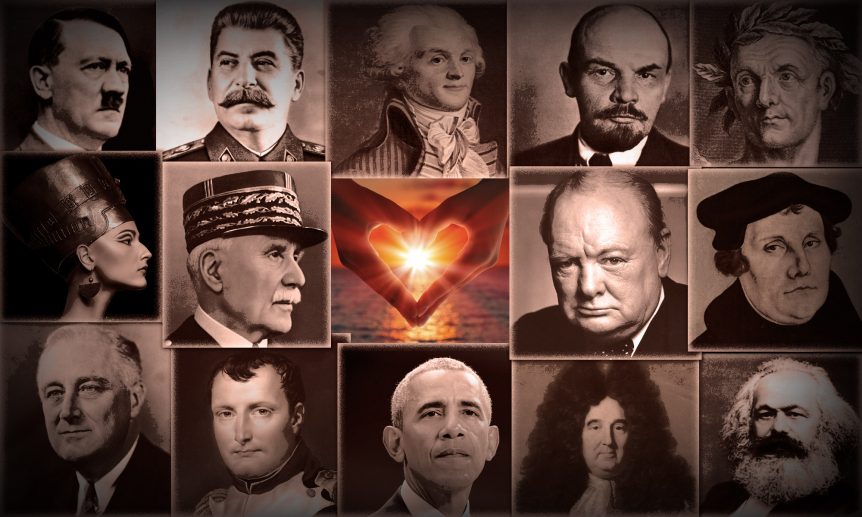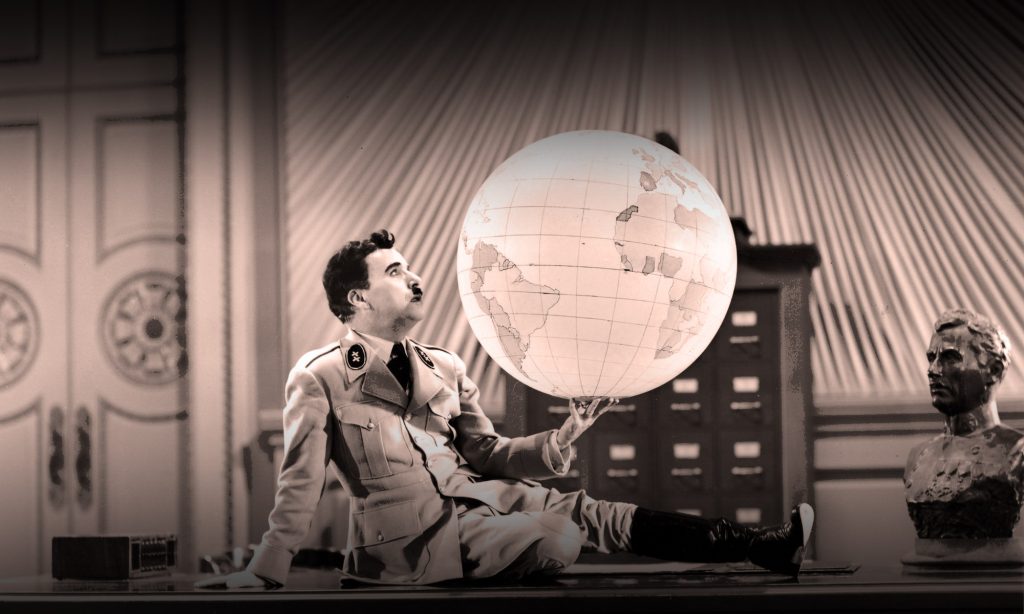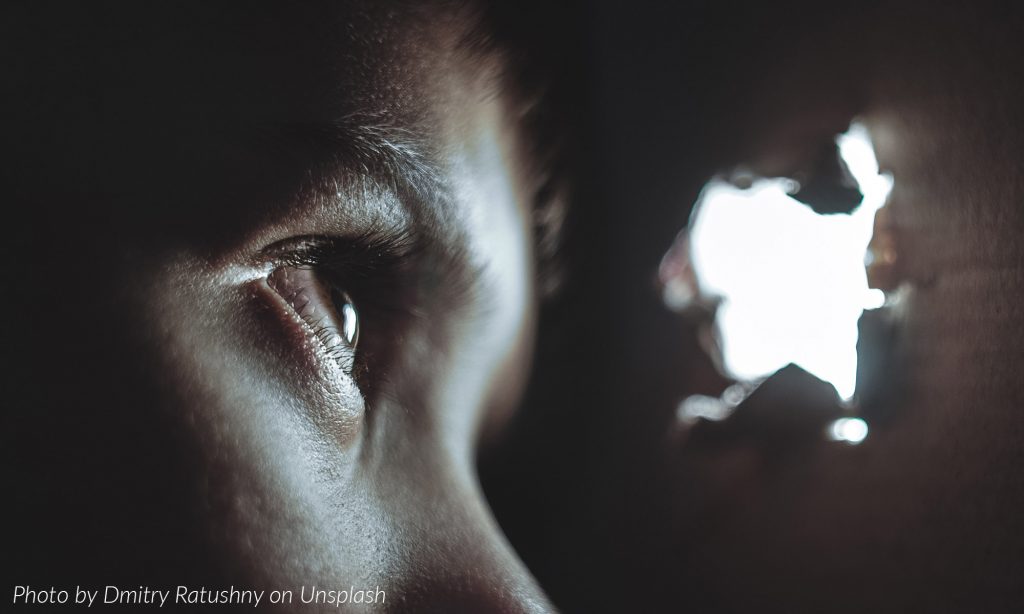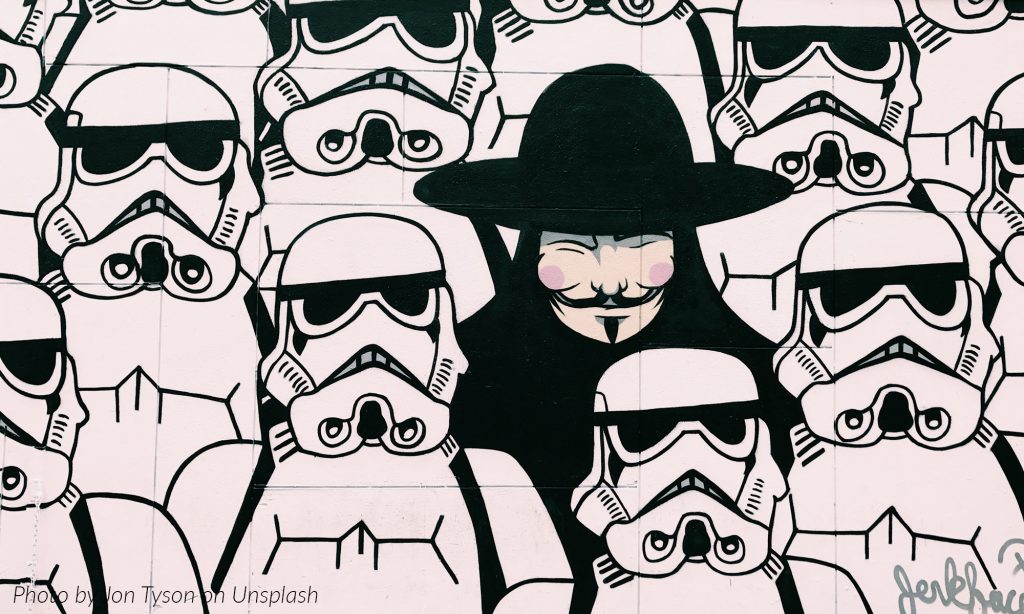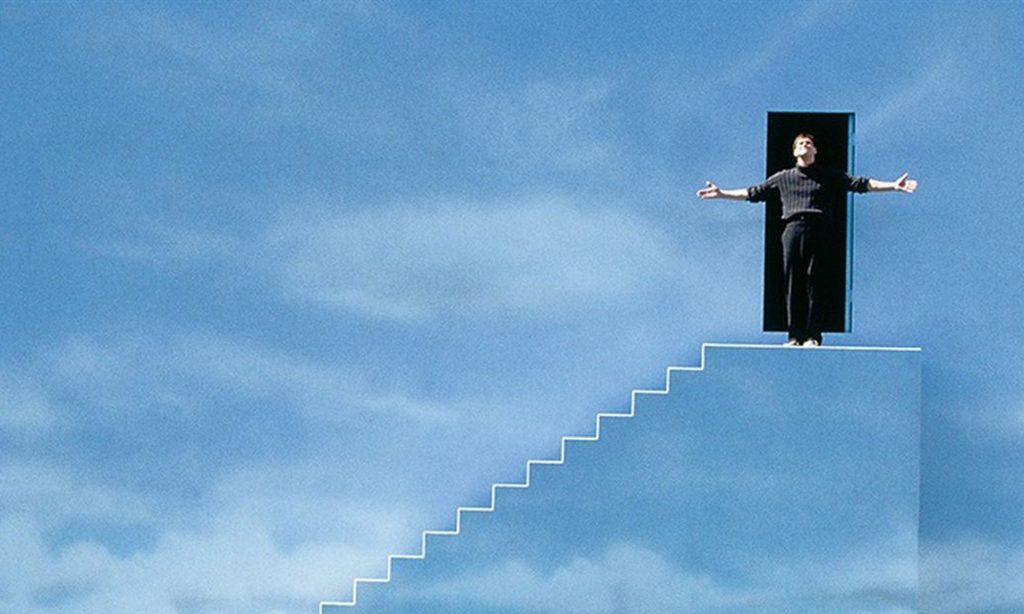Do you know what do Caesar, Cleopatra, Ramses II, Louis VIX, Napoleon, Washington, Marx, Lenin, Stalin, Hitler, Roosevelt and Barack Obama have in common?
The answer is simple: besides the fact that they are leaders whose name became famous in history, all of them are orphans.
However, they are far from being an exception: among the 400 most important leaders of humanity, almost all of them are in the same situation. This is the conclusion of a remarkable study co-authored by three psychoanalysts under the title: Do Orphans lead the world?
Published in 1978, this book was unnoticed by the general public. Yet, it highlights something fundamental about how humanity works. It reveals why, in spite of attempts to develop collective intelligence, most organizations invariably tend to reproduce a pyramid of power dominated by a single leader.
The effects of lack of love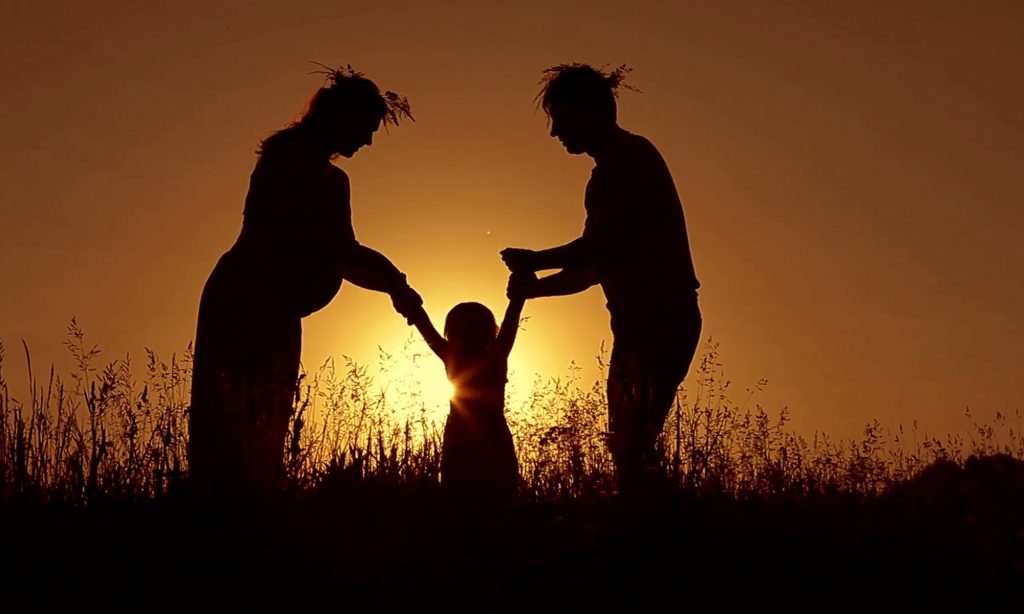
I don’t care if it hurts.
I want to have control
I want a perfect body
I want a perfect soulRadiohead, Creep
To develop in a balanced way, a child needs the love of both his parents. Ideally, each parent will expresses a different and complementary aspect of it. Maternal love, which is essential in the first phase of growth, represents compassion and unconditional acceptance: the mother consoles her children and makes them feel loved no matter what. It offers a matrix of empathy that provides a basis of emotional security from which an individual can develop. Fatherly love, on the other hand, represents justice: the father sets limits, initiates rights and duties, rewards or sanctions the behaviour of his children and enables them to build a healthy awareness of good and evil and to become individuals in their own right.
When justice and compassion unite, it gives birth to equity, which provides a solid foundation for developing a harmonious personality.
However, there are still a number of children whose existence deprives them of this balance: whether paternal or maternal love is absent or dysfunctional because the child has been abused or abandoned, and he/she will become undermined by a fundamental emotional void that will alter his relationship with others.
One of the possible answers will then be for the child to constitute his identity according to an idealized image of what he lacks. For example, if he has never experienced fatherly love, he can compensate for this absence by putting all his energy into becoming a judge, who is an archetypal figure of fatherly authority. If it is the maternal image that is the cause, the answer could be to become a nurse, thus approaching an image of a universal mother.
In all cases, the child who has been wounded will respond to an inner emptiness by recreating in the world an order that conforms to an ideal conception of what he lacked.
In itself, this compensation mechanism is not necessarily negative. To the extent that it can forge in the individual an extraordinary will and reveal unsuspected resources, inner suffering often proves to be an indispensable ingredient for surpassing oneself.
For there are, in the end, only two possible answers to suffering: love or indifference. When a being experiences emotional deprivation and still manages to reconnect with his emotions, he transfigures the lack of love into a creative force. And it is precisely because he has been tested by his inner shadow that he shines powerfully into the light.
This explains why, in the field of literature, there is an impressive number of orphans: Molière, Racine, Balzac, Nerval, Hugo, Renan, Rimbaud, Proust, Joyce, Poe, Tolstoï, Keats, Rousseau, Wordsworth, Max Weber, Baudelaire, Stendhal, Camus and Sartre, to name but a few, were all deprived of at least one of their two parents before the age of twelve. In the same way, Gandhi or Mother Teresa give the example of orphans who transcended their suffering in love and became an inspiration for all humanity.
The real problem therefore begins in reality when inner suffering fails to transform itself into a positive energy and feeds the suffering of the World.
The birth of Strategists
Strategists are the plague of this world and its bad breath. In order to predict, act and correct, they need an arsenal that, aligned, goes around the earth several times. The trial of the past and full powers for the future are their sole concern. They are the doctors of agony, the weevils of birth and death. They call the science of history the distorted consciousness that makes them decimate a happy forest to install a subtle prison, to project the darkness of their chaos as the light of Knowledge.
René Char, Recherche de la base et du sommet.
The twentieth century, in particular, is full of examples of this kind: the struggle for power between Lenin, Stalin and Trotsky was that between three fatherless children, and it was Stalin – who was the most traumatized of the three – who won the race. Later, when Stalin was at the Yalta conference to decide on the division of the world, he faced another fatherless child (Roosevelt) and an abandoned child (Churchill).
But the most typical example of this phenomenon is given by Hitler: fatherless at the age of fourteen and motherless at eighteen, he first tries to find meaning in his existence by becoming an artist.
However, he failed to integrate Fine Arts, and because he could not organize his resilience through creation, he turned to politics.
In other words, he chooses control over love. And the more he repressed his own emotions, the more he became unable to deal with others on the basis of sincerity. He then became a Strategist, who seeks to control others in order to extort something that he does not think he will succeed in obtaining other than by force or cunning.
Such a transformation unlock a tremendous potential for power in an individual. Strategists function at a superhuman level when it comes to reading others like open books and manipulate masses.
However, since they are cut off from their own emotions, they must constantly push the limits of their experiences to try to reach the ghost of an authentically human feeling. Being prisoners of a state that prevents them from recognizing the slightest novelty in their experience, nothing can surprise them anymore.
Failing to be sincere with themselves, they must then constantly weave new plots, invent new scenarios, all with the sole aim of provoking the strong sensations that will put an end to their distress, reminding them of what their existence was like before they suffered the mutation that deprived them from their own emotions.
But, each time, the few crumbs of affect they manage to arouse immediately disappear, and boredom returns, condemning them to seek ever stronger stimuli.
This can end up leading them into grotesque and unbalanced states. In Hitler’s case, this is reflected in particular in the pathological relationship with women. The testimonies of the actress Renate Müller and Eva Braun thus indicate the inability to express the slightest love. Instead, he developed strong coprophilic and masochistic tendencies. It is also what explains the frantic sexual activity that is usually observed in high circles of power: where love can no longer provide food to the soul, pleasure serves as a stimulant to the body.
But it is essentially in his relationship with the group that the Strategist will concentrate all his need for compensation. Since it can no longer find a balance in the normal human relationship, it can only exist within a system of power. What happens then is a phenomenon of reciprocal alienation between the Strategist and the collective.
The fear of freedom
A government based on the principle of benevolence towards the people, such as that of the father towards his children, where subjects, such as minor children unable to decide what is really useful or harmful to them, are obliged to behave only passively (…) is the greatest despotism that can be conceived.
Emmanuel Kant
To understand the nature of this process which binds the leader to the group, one must first understand that, contrary to a widespread conception, human beings do not spontaneously seek to be free.
Freedom is the most fundamental human right: nothing should therefore be more important for an individual than to live an existence guided by his own will. Yet it is remarkable to note that, in reality, everything happens as if we were unconsciously directed by the opposite desire.
Some striking symptoms:
- At the political level, democracy gives everyone the opportunity to participate in building a common future. Instead, we spend our time complaining about our politicians and criticizing the system without making the effort to change it.
- In economic terms, it is now possible for everyone to be more independent by becoming an entrepreneur. Instead, most people prefer to join organizations operating on the power pyramid model.
- On the social level, modern society offers us all the means to develop ourselves as individuals. Instead, most people live an incomplete and unsatisfactory life, following the same trends of fashion and thought as the masses.
- The new technologies further amplify this paradox: they have developed to such an extent that they could enable us to reinvent everything: the economy, culture, politics. But we are not taking advantage of the possibility of liberation that they offer us.
We should therefore ask ourselves the following question: what if, behind our conscious behaviors, there is actually an unconscious pattern of fear of our own freedom?
Initially, all human beings experience a primordial unity in the womb. A world without emptiness, rhythmed by the heartbeat of a being of which we are a part.
Birth, by comparison, is a trauma, which puts us in front of a foreign, unknown and hostile universe, whose first effect on us is to bring cries and tears. It is only after many years that our individual consciousness will be able to form. Over time, we will learn to differentiate ourselves from our parents and to build our own personality.
However, going through all the stages that will allow us to realize ourselves as individuals is not simple: it involves sacrificing our security and constantly confronting us with suffering.
However, going off the beaten track to experience the unknown is always a risk. By undertaking new things, I risk failure; by deciding for myself, I risk being wrong.
Therefore, nothing is easier than to lose myself in the collective to find an echo of the original state of fusion with the mother: if I give up seeking the answers in myself, I can always return to a stage where I did not have to assume the cumbersome burden of my own freedom.
Blending into the group gives me a sense of security and permanence; it exorcises the anxiety of change and the fear of being alone; it keeps me in an illusion of continuity that dispenses me from having to face my own finitude.
What is at the center of all these unconscious patterns is our relationship to death. Indeed, to have a fulfilled existence, it is necessary to have honestly confronted the possibility of one’s own end. But if an individual refuses to confront his or her own shadows, the group can calm these fundamental uncertainties and serve as a refuge. And in doing so, it strengthens our collective shadow, which is the product of each individual renunciation.
The compensatory organization
Whether in love, therapy or political commitment, appears the deaf nostalgia of the original couple, a state of narcissistic fusion with the mother. According to Winnicot, the human being is a “madman” healed, whose scars are just waiting to open.
Bernard Muldworf
The existential need of power of Strategists and the fear of freedom of the collective fit together like two pieces of puzzle to give birth to what I call the compensatory organization.
In many cases, collective movements actually respond to an unmet need for security. Whether it is a question of political commitment, religion or business, what makes us seek the group is a search for fusion with the other that can console us and dispel our fears.
This obviously does not mean that every form of community is infantilizing: politics can be the vector of a responsible commitment, religion can be the vector of a spiritual achievement, companies can be places of autonomy and development. But it is an achievement that must be torn from the permanent temptation to alienate oneself to the group. And how easy this temptation is!
When emotional deficiencies run deep among leaders and the need for security is strong in the group, this can give rise to a vicious circle where the compensatory character of the organization will turn into a pathological need for expansion and domination.
This process stems from a fundamental misunderstanding: what leaders fundamentally seek is a love freely given by other human beings. But freedom goes hand in hand with the risk of betrayal. Therefore, one possible strategy to secure recognition of others is control. The reasoning can be summarized as follows: “If I control others, I can force them to love me without running the risk of them turning against me!”
But as this love will be extorted, it actually has no value, which will force the leader to go ever further in his system of control: the thirst for love will become an unquenchable thirst for power. To play its compensatory role, the organization will have to become ever larger and more powerful, according to a dynamic of infinite expansion that can take the form of military dictatorship as well as that of cancerous bureaucracy.
This is why power environments are typically those where what predominates is a simulacrum of human relations: attracting beings guided by the need for control and security, they tend to close themselves into a series of increasingly exclusive, cruel and manipulative relational circles, ideally crowned by a single Self, towards which all eyes converge. This type of organization is based on fear, emotional sterilization and unconditional obedience to authority.
In other words, the lack of love between human beings is the primary cause of all centralized power. And in the most extreme cases, such as those of Nazism or Stalinism, this feeds a merciless mechanics that ends up leading to the game of massacre whose history is an illustration on a large scale.
It is remarkable to see that representative democracy — often conceived as a bulwark against fascism and dictatorship — is in reality a system that strongly favours compensatory organizations. Indeed, where the monarchy, for example, increases the statistical chances of producing leaders who escape the syndrome of Strategists, democracy literally propels them onto the rails to come to power.
Because of their very balance, “normal” political candidates lack the monomaniac will of the Strategists: not being motivated by an inner void, they do not feel the need to reach a position that allows them to dominate all their fellowmen. This explains why, in representative democracies, there are many human and mature individuals at intermediate levels of authority (mayors, deputies, etc.). It is the phenomenon of social reproduction which means that, for example, 90% of university rectors will have parents who have exercised the same profession. However, this logic of social reproduction no longer works at all when it comes to the summit of power, which is almost exclusively occupied by Strategists.
It should be noted here that although the orphan case is the most striking, there may be variations: Vladimir Putin, for example, had two brothers who died before he was born. He has inherited all the expectations of the family clan and can therefore be considered as an “orphan of brothers”. Nicolas Sarkozy, for his part, had a father who remarried three times, and he will repeat the same pattern of emotional instability.
How do we get out of the vicious circle?
Above the innumerable crowd of equal men rises an immense and tutelary power, which alone is in charge of ensuring their enjoyment and looking after their fate. It is absolute, detailed, regular, far-sighted and gentle. It would resemble paternal power if, like it, its purpose were to prepare men for manhood; but on the contrary, it seeks only to fix them irrevocably in childhood.
Alexis de Tocqueville, Democracy in America
Generally, this is the most obvious thing that we end up not seeing anymore. The orphan syndrome is an unthinkable part of our civilization: a formidable blind spot of which we will remain victims until we make it fully conscious.
The fundamental hypothesis I put forward in this article is that the phenomenon of compensatory organization is not only at the origin of centralized power systems such as states and most enterprises, but that it is also at the origin of history itself.
Lucy’s skeleton, dated at 3.2 million years, is the oldest discovered. However, there is hardly any trace of violence on human skeletons until the Neolithic period, which began only ten thousand years ago. It is only with the sedentarization and the appearance of cities that a form of systemic violence is introduced into humanity.
This indicates that human beings, as long as they maintain contact with nature, tend to live in harmony with it and do not spontaneously seek to expand exponentially, dominate others or destroy their environment. On the contrary, they take care of each other and cooperate to ensure their mutual well-being.
It is therefore highly likely that, in early human groups, disruptive behaviors such as lack of empathy or the need to dominate others were rightly identified as contrary to the group’s interest.
It is equally likely that it was only with the emergence of larger human communities that individuals in search of power were able to find a favorable ground to play on information asymmetry and collective fears and give birth to the first compensatory organizations. And that it was this phenomenon that led to the centralization of power, a rapid expansion of civilization but also the first forms of mass violence.
This means that so far, human history has been written not by peoples, but by a small group of individuals who have only been able to find satisfaction by projecting their shortcomings throughout society. It also means that wars, crises and political events that determine the destiny of nations are largely the product of the unresolved suffering of a tiny minority of individuals.
However, wars cause the appearance of new traumatized beings who in turn seek to compensate for their suffering by becoming leaders. It is a vicious circle, from which humanity has never managed to escape.
Obviously, all this can only exist if the group agrees to enter into this relationship of dependence: the leader will seek in power a substitute for the love he has always lacked, and the crowd will seek in domination by the leader a promise of security that will be a substitute for true freedom.
From this point of view, the fascination we feel for the leader comes not so much from himself as from the fact that he sends us the echo of the whole group. The political leader, the business leader, the guru, any holder of authority cumulates in his gaze that of the rest of society. The focal point of the imaginary construction represented by the community, he is the one on whom the whole building rests. Authority embodies the unconscious need for walls that protect against any attack from the outside world. It makes security a reality.
In other words, there is no master without a crowd to give it reality. And fundamentally, it is an alienating relationship: the mass is permanently infantilized by its dependence on authority, and the leader blends into a collective figure in which he goes endlessly seeking to compensate for his emotional wounds.
That is why, when a head of state dies, it is generally said that the nation is an “orphan”. In the case of General de Gaulle, Pompidou even said that she was a “widow”. That says how much the relationship the chief has with society is sublimated.
It does not matter here whether the leader in question is on the side of dictatorship or democracy: in all cases, he will play the role of the actor who will monopolize the center of the stage and install the rest of the members of the group in the passive role of spectators. In other words, the emotional disability of leaders remains to this day the main factor preventing the large-scale development of collective intelligence.
As this relationship is not based on trust, but on mutual dependence and fear, it is inherently unstable. If this fear intensifies during any crisis (whether it is a fear of the crowd towards the leader or a fear of the leader towards the crowd) things can very quickly turn into a nightmare. The rise of fascism in Europe, which led to Nazism and collaboration in France, in one example, and the current crises in Syria or Libya are another. In the end, the scenario has never ceased to be repeated by Roman emperors in our time, cyclically triggering a massacre game on a collective scale.
This problem is so profound that it has determined the entire history of humanity so far. And we will only emerge from the cycle of crises and wars when we have finally succeeded in freeing ourselves from the need for security that we collectively project on our leaders.
The path is indicated by organizations operating in collective intelligence (in all their learning, agile, liberating variants…). It is also given by the functioning of the primary cultures which rely on small groups and initiation rites allowing emancipation and self-knowledge.
I would explore these keys to collective empowerment in more detail in a forthcoming article on the inner transformation of leaders and the birth of what I call loving organizations.
|
Orphan(s) of father before the age of 8 years |
||
|
|
|
|
Orphan(s) of father before the age of 15 years |
||
|
|
|
|
Orphan(s) of father before the age of 20 years |
||
|
|
|
|
Orphan(s) of mother |
||
|
|
|
|
Rejected by the father |
||
|
|
|
|
Abandoned children |
||
|
|
|
|
Illegitimate children |
||
|
|
|

